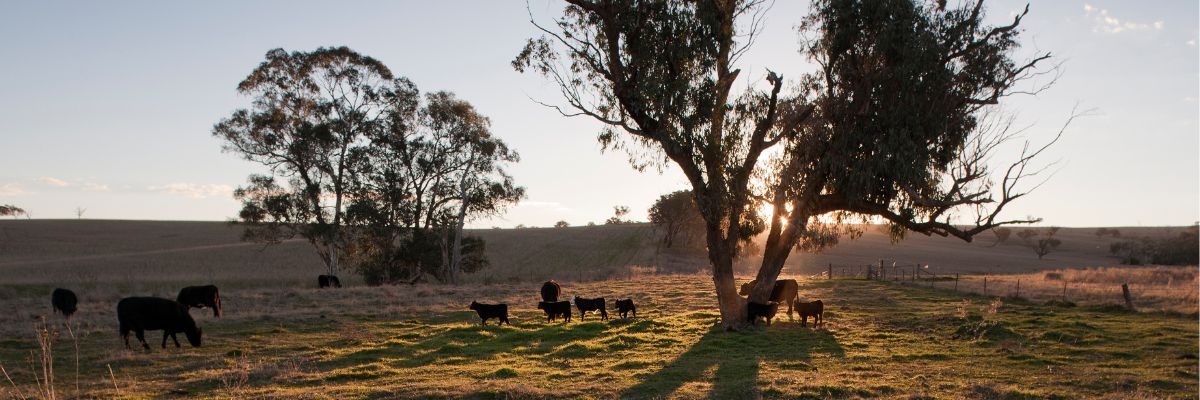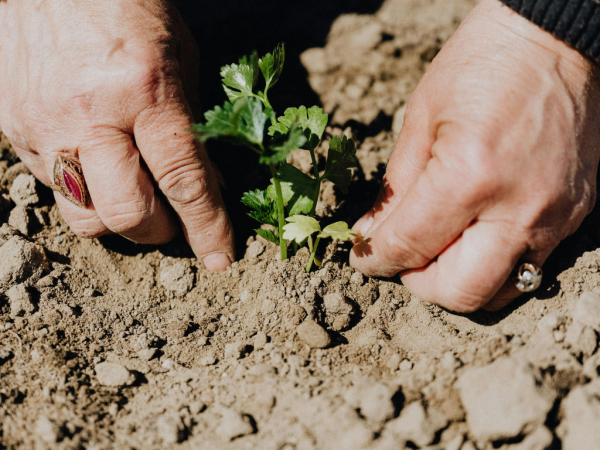From guidelines to greener plates: Australia’s necessary dietary shift
Sustainable diets emerge as an area of ‘very high priority’ for the Australian Dietary Guidelines review. DFN welcomes this focus and anticipates a future with more plants on every plate.

As the Australian Dietary Guidelines (ADGs) undergo review, the National Health and Medical Research Council (NHMRC) has placed significant emphasis on exploring sustainable diets, establishing a working group to solely tackle this topic.
But what exactly constitutes a sustainable diet? According to the Food and Agriculture Organization (FAO), it encompasses diets with minimal environmental impact, ensuring food and nutrition security for both current and future generations. These diets prioritise biodiversity and ecosystems, respect cultural diversity, and are accessible and affordable to all. Let’s explore how plant-forward diets align with these principles.
Reduce greenhouse gas emissions
Food contributes to roughly one quarter of global GHG emissions. Livestock – animals raised for meat, dairy, eggs and seafood production – contribute a staggering 31% to this figure, and this is before accounting for additional factors such as land use or supply chain emissions from crop production for animal feed.
A 2016 study led by Marco Springman identified that a global switch to a vegan diet could reduce food-related greenhouse gas emissions by as much as two thirds.
Locally the data shows we are not headed in the right direction when it comes to livestock emissions. The latest Australian GHG emissions quarterly update (Dec 2022) shows that emissions from agriculture have risen as a result of increases in livestock numbers and crop production.
A global switch to a vegan diet could reduce food-related greenhouse gas emissions by as much as two thirds.
Save lives
The same 2016 study also highlighted moving to diets with fewer animal-sourced foods would have major health benefits, up to 8 million lives could be saved globally by 2050. More than half of these avoided deaths would be attributed to red meat consumption and 24–35% due to increased fruit and vegetable consumption.
Not surprisingly Australia ranks among the world’s top meat-consuming countries, with an average annual consumption of 89.6 kg per person in 2019. Australia’s leading health issues, like heart disease, stroke, and diabetes, all have direct links to poor nutrition.
Plant-based diets, including total vegetarian or vegan diets, are recognised in the current Australian Dietary Guidelines as healthy and nutritionally adequate for all stages of life. Nutrient-dense plant-based diets are a central pillar of a healthy lifestyle, helping to prevent many of the chronic conditions that impair quality of life as we age.

Maximise public funds
The Australian Institute of Health and Wellbeing (AIHW) identified ‘overweight and obesity’ as the number one risk factor contributing the highest cost to Australia’s health system, at $4.3billion, not accounting for other costs such as reduced productivity.
Imagine what could be achieved, from a dietary perspective alone, if even a portion of this money was directed to strengthening and building new partnerships with all levels of government, the private sector, community-based organisations, and families to ensure consistent and equitable access to healthy, safe, affordable foods for all.
Prioritising biodiversity
Three quarters of global deforestation is driven by agriculture, beef production is responsible for a whopping 41% of that.
A 2020 WWF report on deforestation identified Australia as the only country in the developed world to appear on the list, clearing for cattle pasture was the primary driver.
Almost 75% of Australia is rangelands, suitable for livestock farming but this does not mean deforestation and land clearing is not rife. 680,688 hectares (the size of Ireland) of woody vegetation were cleared in Queensland alone in 2018-19, mostly for agriculture. Much of this was ‘likely or known’ koala habitat cleared for activity linked to grazing cattle for beef in Queensland alone; they are now endangered.
A brief word on soy; there is no doubt that soy is being grown in harmful ways across the globe but the biggest reason for the surge in its production (it has increased 15 times in the past 50 years), is to feed livestock. More than three-quarters (77%) of global soy is fed to livestock for meat and dairy production.
680,688 hectares (the size of Ireland) of woody vegetation were cleared in Queensland alone in 2018-19, mostly for agriculture.
Easing the household financial strain
Food and non-alcoholic beverages continue to put pressure on Australian households. Local and international studies indicate diets that include more plants provide more cost savings than those heavy in animal products. A simple example is a homemade curry where 500g of lamb is swapped out for chickpeas – this one meal alone could save about $12 for a family of four. The other benefit is the proliferation of many frozen and canned plant-based foods that reduce food waste and are accessible for the majority of Australians.

Australia must take action
The global syndemic of obesity, undernutrition, and climate change affects most people in every country and region worldwide. In high-income countries like Australia, where many of us are in a fortunate position to have choices when it comes to our diet, we have an important role to play.
Shifts to plant foods correlate consistently and robustly with higher overall diet quality for human health. These same shifts are key for planetary health – which underpins all human health – they are a prerequisite to remaining below the 1.5°c warming threshold set by the 2015 Paris Climate Agreement, and securing a safe operating space for humanity.
Doctors For Nutrition praises the NHMRC for addressing the urgent need to promote diets that are healthy and have low environmental impacts. We look forward to seeing sustainability woven through the revised Australian Dietary Guidelines when the final updates are published in 2026.
Have you seen the news?
On Sunday evening 25 February 2024, Dr. Heleen Haitjema, co-founder and board director of DFN, joined a debate on the new Sky News ‘The Jury’ program, and provided her expert opinion on the pressing need to decrease red meat consumption to counteract the damaging environmental and climate consequences of meat production.




